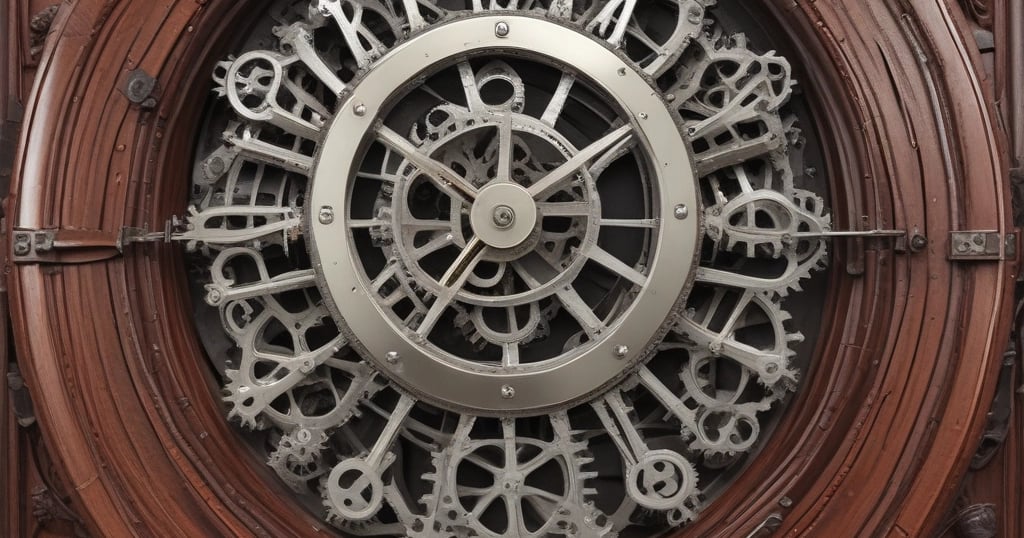The Chronometer of Unwritten Time
The Chronometer of Unwritten Time. Elias was the last true clockmaker in Vibrato City, a metropolis where silence had been outlawed by accident the collective, relentless sound of progress. He lived in a workshop high above the clamor, a refuge smelling of brass filings and aged oil. Below him, the
9/26/20253 min read


Elias was the last true clockmaker in Vibrato City, a metropolis where silence had been outlawed by accident the collective, relentless sound of progress. He lived in a workshop high above the clamor, a refuge smelling of brass filings and aged oil. Below him, the horns blared the future, the machinery ground out the present, but Elias was preoccupied with the past—or, more accurately, with what lay between the seconds.
His life’s work had culminated in a single, six-foot-tall chronometer he called Aethel. It was a monument of rosewood and silver gears, yet it housed a profound paradox: it had no bell, no gong, no chime. Elias wasn't trying to measure time; he was trying to measure silence.
For twenty years, he had chased the perfect vacuum, the flawless mechanism that could mark the passage of the unspoken hour. He theorized that true silence was not the absence of sound, but the sound of absolute potential—the moment between the tick and the tock when reality paused to consider its next move. Every clock he made until now had failed, succumbing to the noise filtering up from the streets, manifesting as a faint, insidious hiss in the works.
Finally, after one last, grueling month of meticulous calibration, Elias fitted the final jewel bearing into Aethel. He stepped back, wiping the grime from his spectacles, and waited. The massive clock began to run.
The gears spun in a blur of polished metal, the second hand swept around the face, and the hour hand crept forward, but there was no sound. There was no tick, no tock, no hum. There was nothing.
For the first time in his life, Elias was genuinely disappointed. He had sought a revelation, a profound acoustic event, yet he had achieved only absolute nullity. He stood there for an hour, listening to the silence of his workshop, which was still defined by the muffled roar of the city outside—the distant wail of a siren, the rattle of a distant train.
Dejected, he turned to wind down the mechanism. His hand reached for the key, but just before he engaged it, something shifted. It wasn't in his ears; it was behind them, a space opening up in his perception.
The clock wasn't silent.
The clock was transmitting the silence of the listener.
As Elias listened not with his ears, but with his memory, the chaos of Vibrato City faded. He heard, suddenly and crystal clear, the single, precise moment his mother had laughed forty years ago—the sound untarnished by intervening years. He heard the exact pressure of the wind the day he first opened his workshop door. He heard the faint, hopeful hush of the world before the Industrial Revolution, a sound he had only read about in forgotten books.
Aethel didn't eliminate external noise; it created an interior shield, allowing the wearer to perceive the pure, unadulterated sound of their own past and potential. The silence it created was a sanctuary for memory.
A small boy, Leo, who often swept the workshop floor, came in that evening. He stood before the tall clock and whispered to Elias that it must be broken because it didn't make any noise.
Elias smiled, the weariness gone from his face, replaced by a deep, resonant calm. He didn't need to shout to be heard over the city anymore. He replied to Leo, his voice soft but carrying absolute conviction, that the clock was not broken; on the contrary, it was the only one that truly worked. He explained that all the other clocks told you what time it is, but this one, his boy, told you who you were, and who you might still be.
Elias never sold Aethel. He simply let it run, a silent, beautiful beacon in the heart of the world's loudest city, offering the gift of true quiet to anyone with the courage to stop and listen to the unwritten time echoing within themselves.
Connect
Explore our blogs and learn with us.
Support
Follow
contactus@solsticeuk.blog
+44-20-7946-0958
